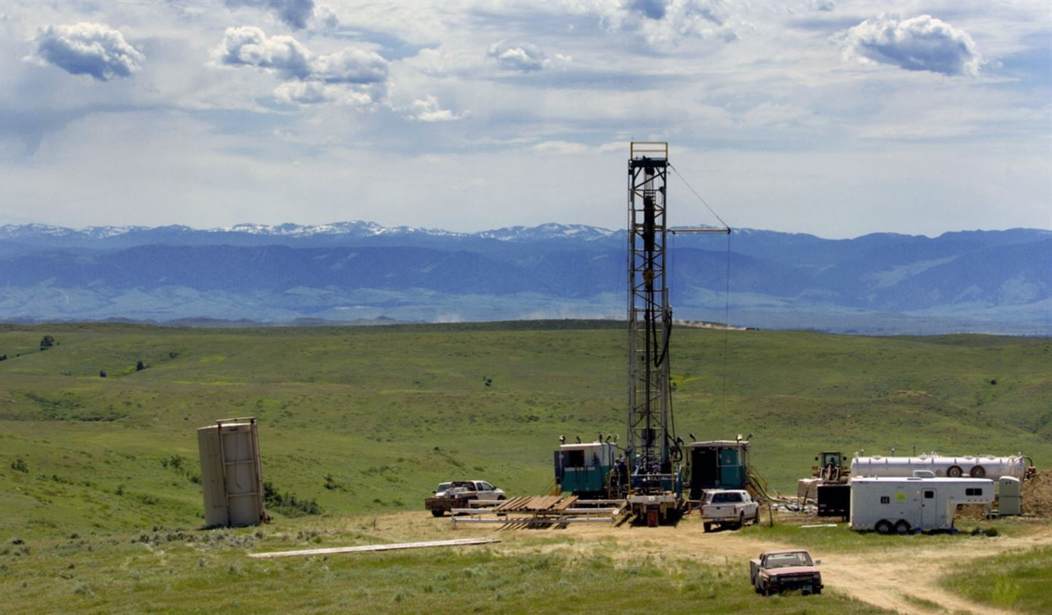Fifty years ago, the nation was in the throes of what was then known as the Energy Crisis. This was not a crisis of supply; it was a crisis of government interference in markets. Today, the governments of the world are still meddling in markets; today, our own federal government is still guddling about in our energy supply infrastructure and markets while draining our country's reserves dry to try to cut a dime a gallon off skyrocketing gasoline prices.
What has gone wrong is very clear to anyone who understands how markets work.
Take a look at these words:
“The oil industry is being destroyed by a bombardment of paper–of governmental rules, regulations, directives, edicts, commands. But that bombardment is more effective than other kinds of air raids: it blasts your power stations, extinguishes your lights, freezes your homes, stops your motors, locks your factories, wipes out your jobs, and leaves a barren land on which nothing will grow again for generations.”
“The result of our present economic system is that the men who do the work – in this case, the oil industry – know the state of their production at a given moment, but do not know what edict will shatter them next month or next year. The government officials do not know the state of the industry they are controlling – nor what edict they will feel like issuing next week.”
Sound familiar? Like the state of affairs even today? These words are from Ayn Rand's 1973 essay, The Energy Crisis. Rand rightly called out the actual cause of the "oil crisis" of the 70s at that time, and she would no doubt look at today's energy markets and say the same thing.
In other words, we haven't learned. Plus ça change, plus c’est la même chose.
Ayn Rand spent a good part of that decade castigating pols of all stripes on issues other than energy.
Rand’s commentary about Richard Nixon’s wage and price control program of August 1971 (the public acceptance of which represented a “moratorium on brains”), remains biting. And from Nixon’s beginning, she diagnosed the “energy crisis” in terms of the failed mixed economy where distortive regulation expands from its own shortcomings.
If only Ayn Rand were here to write about the global warming/climate crusade. And the energy industry’s back-pedaling and “greenwashing” of the issue, trying to placate its enemies. (It did not work, and signs of change are in the air.)
Over the years, I've read most of Rand's work. Early on, when I was about twenty, I first read "Atlas Shrugged," although I really didn't understand a lot of the messages of that book until years later, after having read a lot of Rand's non-fiction. "Atlas Shrugged" isn't great fiction; fiction writing clearly wasn't Ayn Rand's primary talent. It is long-winded and tedious in places.
But Rand's message was prescient, and you can see why in today's energy and climate change discussions. The energy markets are anything but free; energy producers are weighted down with taxes, subsidies, and regulations, while snake oil salesmen promising the latest "green" energy schemes are gifted with generous subsidies. Oil and gas companies are faced with road-blocking protests and lawfare attacks. Gas prices skyrocket while the Biden administration fiddles around the edges of the market by draining the Strategic Reserve. Rand's observations from the "Energy Crisis" of the 70s still hold true today, and much of her work, day by day, proves more and more prophetic. But then, Rand was born and raised in the Soviet Union; she had seen it all before.
It's not funny anymore.
It all starts to make a little more sense, though, when you consider the obvious motivations of the legislators and regulators — Rand called them "looters." She made another statement, this a fictional one, that goes a long way toward helping us understand the motivations of too many people in government:
Did you really think we want those laws observed?" said Dr. Ferris. "We want them to be broken. You'd better get it straight that it's not a bunch of boy scouts you're up against... We're after power and we mean it... There's no way to rule innocent men. The only power any government has is the power to crack down on criminals. Well, when there aren't enough criminals one makes them. One declares so many things to be a crime that it becomes impossible for men to live without breaking laws. Who wants a nation of law-abiding citizens? What's there in that for anyone? But just pass the kind of laws that can neither be observed nor enforced or objectively interpreted – and you create a nation of law-breakers – and then you cash in on guilt. Now that's the system, Mr. Reardon, that's the game, and once you understand it, you'll be much easier to deal with.
Again: Sound familiar?
The energy sector has suffered under this for long enough. In the 70s, the energy sector suffered under the burden of government. Today, that suffering has only grown more onerous. It's time to let markets work.

